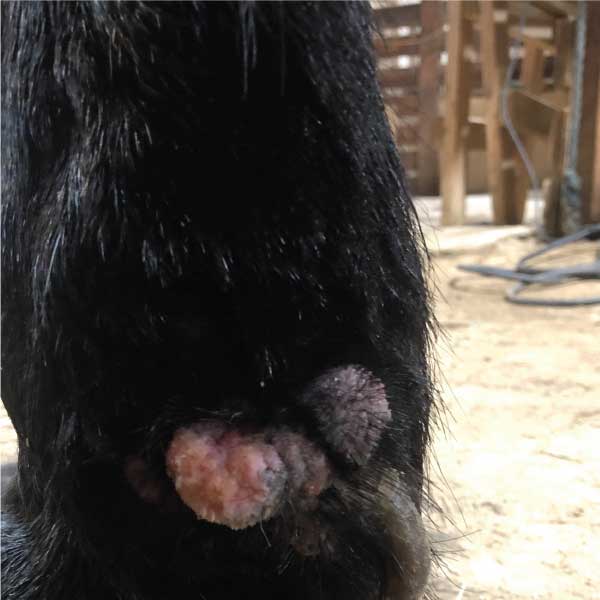Horse Health: Sponsored by Cornerstone Equine Veterinary Services A look at Summer Sores
Your horse has a wound and it is not healing. “What is going on?” you ask yourself. Summer sores are very common on horses’ legs, lips and even the sheath and belly area. They are particularly worrisome because they can be hard to treat and may not heal after trying several kinds of topical treatments. “Summer sores” are a common name for the wound; however your veterinarian will call these open wounds Cutaneous Habronemiasis.
Habronema larvae, which develop into stomach worms, can embed in your horse’s skin instead of making their way to the stomach where they mature. Typically, the stomach worm doesn’t cause harm to the horse. So how does a stomach worm infect skin wounds? The intermediate hosts are stable flies, which carry larvae from the horse’s manure and lay them in any moist area on the horse’s body. Thus, a wound on any part of your horse can become infected.
The most common areas of infection are the lips, eyes, sheath, vulva, leg, and belly. The horse’s body can mount an aggressive reaction to this parasite resulting in proud flesh (exuberant granulation tissue). The wound can be oozy and itchy, with small, yellow rice-shaped nodules around the edges.
Kim Clark of Windyrein Farm in Eads, TN has one horse who is prone to summer sores. “You have to treat this right away. It can heal quickly, but also get out of control if not treated.” She notes her veterinarian has a topical ointment that is very effective along with oral de-worming with ivermectin.
Treatment and Prevention
If you suspect your horse has a summer sore, call your veterinarian for evaluation and treatment options. The sore may need surgical debridement followed by topical steroid and/or antibiotics and a bandage to keep flies out as it heals. Your vet may also suggest a course of de-worming with either moxidectin or ivermectin to decrease the stomach worms and the larvae.
A horse that has summer sores may be more prone to get them in the future, so prevention should be a part of your plan. Frequent removal of manure from pastures and stalls, effective composting, fly sheets and fly boots, masks and fly spray, fly predators, fly traps and bait, feed-through insect growth regulators (they disrupt the life cycle), and de-worming on a schedule your vet recommends are helpful tools in preventing these sores. Early and aggressive veterinary treatment combined with multiple fly control practices can help keep your horse healthy. For more information call your veterinarian or visit the American Association of Equine Practitioners website: https://aaep.org/horsehealth/summer-sores








